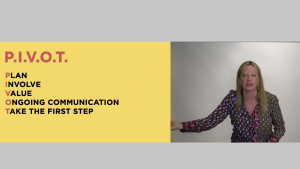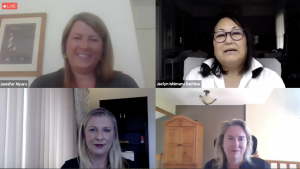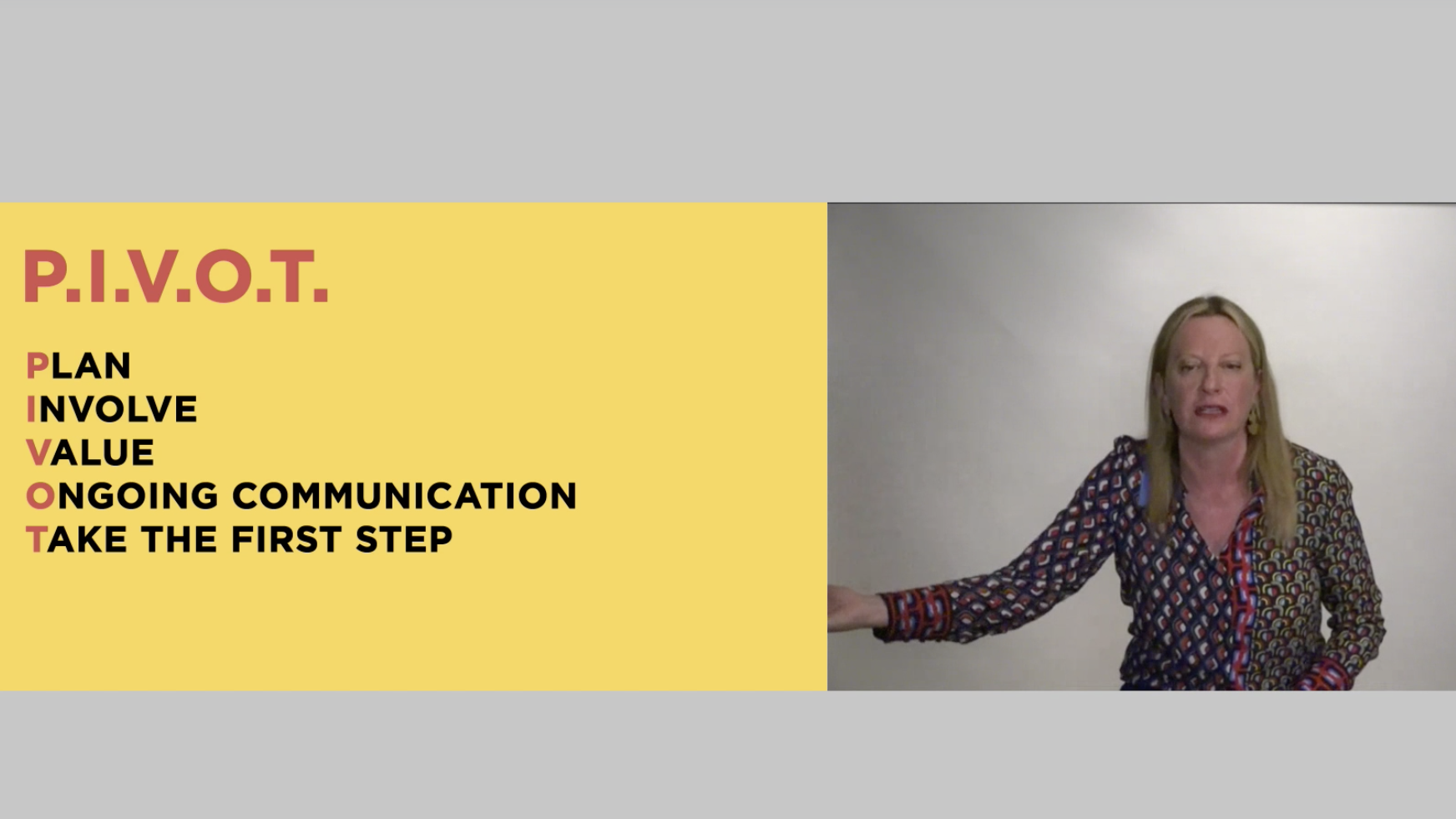
SiteOne Landscape Supply’s Women in the Green Industry gave attendees strategies for advancing their careers and plenty to process. The virtual event drew attendees from all over the industry.
Michelle Rozen, Ph.D., a speaker specializing in change management and motivation, kicked off the event with a session entitled, “How to lead forward through change with confidence.”
Rozen started off with a startling statement: “Our brain takes just 20 percent of our energy just to get by,” she said.
She outlined a four-step process to help attendees harness their brains to go beyond that 20 percent and welcome new and exciting opportunities in their lives. The steps included:
1. Empower. Ask yourself, who did I empower today? “Every little kitten wants to feel like a lion — and every person wants to feel like they matter,” Rozen said. “Engage people to work with you, not against you.”
2. Focus. Rozen recommended listing your goals and rating each of them on a scale of 0-10, 10 being the most important. Any goal that isn’t a 10 is a distraction and should be removed from the list. This will help you focus on what matters to you the most.
3. Overcome mind biases. Rozen explained that your brain plays tricks on you, causing you to believe you’re surrounded by difficult people, leading you to associate only with people who agree with you and helping you fill in information gaps with details or stories that may or may not be true. She recommended that everyone challenge and question these thoughts and ideas to get to the truth.
4. The 20-minute rule. In a stressful situation, pausing for 20 minutes will help you calm down and activate the prefrontal cortex, the strategic part of the brain, rather than the amygdala, the part responsible for impulsive behavior. “The amygdala is the drunk driver of your life,” Rozen said. Taking some time to calm yourself and then taking action is the best choice.
Rozen took questions from attendees on how to apply this process to their goals in a follow-up session.
The ins and outs of H-2B
Attendees also had the opportunity to learn the ins and outs of the H-2B visa program from Scott Patterson, shareholder with the Detroit law firm of Butzel Long.
Patterson discussed how companies go about filing an application to receive H-2B workers, how companies can ensure they follow all the necessary Department of Labor protocols and a few complications companies may encounter.
“The cap is the biggest problem with H-2B, and the cap rears its ugly head in a couple of different ways,” Patterson said. “The demand dramatically exceeds the cap. Also, it’s almost a guarantee that Department of Labor will come to look over your shoulder, so you need to make sure all your ducks are in a row.”
He added that this year, COVID-19 did affect the H-2B program because of travel bans and the cap on visas didn’t get extended.
He noted that as of his presentation, everything seemed to be about the same in 2021 as it was for 2020, except that the extended supervised recruiting period became extended from 15 days to 30 days and employers must reach out to job office to see what you need to do in terms of recruiting.
“What’s to happen for 2021 is still to be known at this point. They are processing applications for 2021,” he said. “We all need to see what COVID is going to do with the visa processing and moving people around. Two potential issues include will they ban it and how do you move people around with crossing borders?”

Looking forward with female leaders in the landscape industry
To end the day, attendees had the opportunity to hear from female landscape industry leaders Brigitte Orrick, director of recruiting and employee development at The Davey Tree Co., Kent, Ohio; Jaclyn Ishimaru-Gachina, president and CEO of Gachina Landscape Management, Menlo Park, Calif.; and Jennifer Lemcke, CEO of Weed Man Lawn Care, Toronto, Ontario, Canada.
Jennifer Myers, senior director, workforce development for the National Association of Landscape Professionals led the panel discussion, which focused on recruiting, retention, promotion, advancement and inclusion of women in the landscape industry.
Some key takeaways from the panel discussion include:
On attracting women to the industry:
“We’ve identified things that we call ‘inclusion accommodations’ that women need to have to be successful: Be able to find safety equipment that appropriately fits, access to bathrooms on the job … (Another thing we’re focusing on is) measuring our workforce and communicating areas for improvement. Where can we do some goal setting to improve areas that have underrepresented groups of people?”
– Brigitte Orrick
On building a culture of growth and inclusion:
“It’s not just about being inclusive and having women in your company; it’s also the culture that has been cultivated over the years. It’s hiring the best person for the job, knowing that we grow the company so there are opportunities for people to stay with the company and not having to leave to find their next promotion; it’s posting job opportunities internally first, and the recruiter we work with knows our company and the type of person that we’re looking for.”
– Jackie Gachina
On bringing a variety of viewpoints to the table:
“(At Weed Man), we have these roundtables where different departments come in and play. I don’t think we say sit male-female-male-female at the table, but it’s different departments. They’ll have these different perspectives. I feel that helps our company have different eyes on different issues and how to fix things. Sometimes you get too departmentalized, and sometimes you’re throwing around the same ideas. We talk a lot about this — what does the current state look like, what does the future state look like and how are we going to get there?”
– Jennifer Lemcke


